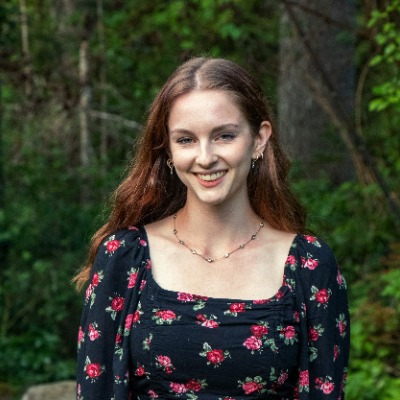Hispanic and Latino Studies Capstone Presentations
Spring 2022
Dra. Emily F. Davidson
Monday, May 23, 3-5:00pm – ADMN 200
Tuesday, May 24, 3-5:30pm – MCLT (Morken) 132
Monday – ADMN 200
3pm – Opening Remarks
3:05-3:25pm - Emily Toycen
Definir la naturaleza: Cómo la definición angloamericana de la naturaleza excluye a los pueblos hispanos, latinos e indígenas de los Parques Nacionales /
Defining Wilderness: How the Anglo-American Definition of Wilderness Excludes Hispanic, Latinx, and Indigenous Peoples from National Parks
The wilderness areas of the national parks in the United States are seen by many as an untouched, uninhabited, and pristine natural wilderness. However, every national park is on lands that were once inhabited by Indigenous peoples for thousands of years, and these people had and continue to have an effect on the land. By calling these places untouched, we are essentially erasing the history of all those Indigenous peoples and excluding them from the National Park Service and its history. Hispanic and Latino peoples have also been excluded from national parks and the NPS history; there are multiple parks on the lands of former Spanish mission sites. These stories of exclusion were born from a history of colonization and “othering” in the United States which has contributed to promoting an Anglo-American definition of wilderness which continues to create exclusion in the parks today. By analyzing various primary and secondary sources from the perspective of and about these different cultural groups, I identify the different definitions of wilderness and examine the history of colonization in the United States through lenses of environmental and colonial criticism.
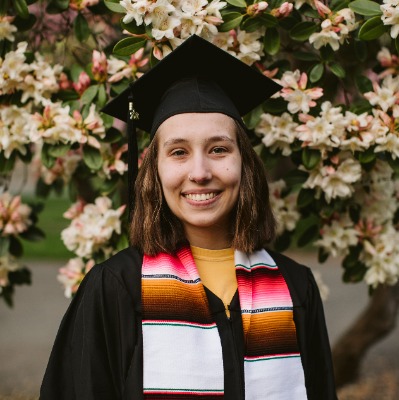
3:30-3:50pm - Bailey Williams
¿Bruja o curandera?: Bless Me Última y la creación de una mejor representación literaria y fílmica de las brujas y curanderas /
Witch or Faith Healer? Bless Me Última and the Creation of Better Literary and Film Representations of Witches and Faith Healers
My presentation describes how changes to the representation of faith healers and witches can impact their acceptance in real life societies. Guided by Gloria Anzaldúa’s feminist chicana framework, I analyze the controversial banned book Bless Me Ultima by Rudolfo Anaya and its movie adaptation of the same name by Carl Franklin. I argue that the differences in representation between the two types of media reveal distinct aspects of curanderismo, helping to contribute to better artistic representation and thus better understanding in the public. Through the use of myths, narrative style, and the blurring of lines between witches and faith healers, these works shed light on the historical persecution of these women as figures that help communities while challenging patriarchal structures.

3:55-4:15pm - Sarah Calvin-Stupfel
La resistencia y curación chicanx/a/o queer a través del artivismo: Las obras de Julio Salgado y Alma López como continuación del proyecto crítico de Gloria Anzaldúa /
Queer Chicanx/a/o Resistance and Healing through Artivism: The Work of Julio Salgado and Alma López as a Continuation of Gloria Anzaldúa’s Critical Project
This combined Global Studies and Hispanic Studies capstone project utilizes various ideas from Gloria Anzaldúa’s Borderlands / La Frontera: The New Mestiza as a theoretical framework to analyze and examine the work of Julio Salgado and Alma López, two L.A.-based queer Chicanx/a/o digital artivists. By examining their art through an Anzalduan lens, the artivist work of Salgado and López is understood as a simultaneous resistance and healing practice in response to regulatory oppressive structures. I argue that Salgado and López use their artivism to challenge mainstream narratives of the Chicanx/a/o experience: Salgado uses his art to imagine a bright, colorful, and joyous world for queer and trans people of color, and Lopez uses her art to manipulate traditional cultural and religious symbols, re-presenting them through a queer Chicana feminist lens and challenging the hegemony of the colonial heteropatriarchy. Through their artivist work, Salgado and López demonstrate how art can be a mode of resistance and healing by creating, and therefore demanding, space for the celebration of multiple identities at once by crossing the borders and boundaries of race, gender, sexuality, body, mind, and spirit. I provide a close analysis of two works from both Salgado and López: Homoland Security, Angel Chicho, Our Lady, and Heaven 2.
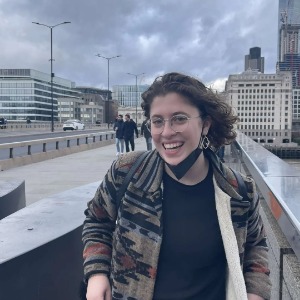
4:20-4:40pm - Emily Jefferson
“Una casa para cantoras”: Utopía, memoria, y historia queer en Cantoras por Carolina de Robertis /
“A house for cantoras”: Utopia, memory, and queer history in Cantoras by Carolina de Robertis
This project addresses the way that the novel Cantoras by Uruguayan-American author Carolina De Robertis queers Uruguayan history and national identity. I will be examining the book through the critical framework of queer utopia, as described by scholar José Esteban Muñoz, as well as examining how this book fits into the tradition of memory studies in Latin America. Specifically, my project analyzes the way that De Robertis’ book reimagines the straight conception of the Uruguayan experience under dictatorship by fictionalizing the real history of what the queer community experienced during that time. De Robertis creates a queer memory artifact that undoes the alienization of queerness in the Uruguayan national identity.
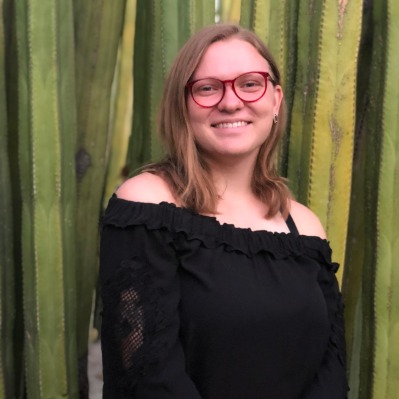
4:40-5pm: Q&A
Tuesday – MCLT (Morken) 132
3pm – Opening Remarks
3:05-3:25pm - Tatiana Molinero-Ceras
Humanizando el desarrollo, escuchando a las voces Hondureñas /
Humanizing Development by Listening to Honduran Voices
Violations of human rights sanctioned by the state of Honduras continue as neoliberal policies privatize land for development projects. Rural communities are left without a home, livelihood, and are targeted by the national police and military for opposing these policies and projects. The United States, the UN, and western media support and often fund these projects because they benefit from the profits and international relationships they make from them. Through a postcolonial approach, I analyze two documentaries, Resistencia (2015) by Jesse Freeston and Revolutionary Medicine (2014) by Freeston and Beth Geglia which uplift the different rural communities in Honduras that are creating solutions for their communities while being targeted and killed by the police and military in order to silence their voices from reaching mainstream media sources. Jesse Freeston and Beth Geglia aim to help the people of Honduras tell their stories by using their positionality to produce documentaries that add to the collective memory of Honduras when “legitimate” or “academic” sources only give limited perspectives and purposely hide the voices of marginalized groups.
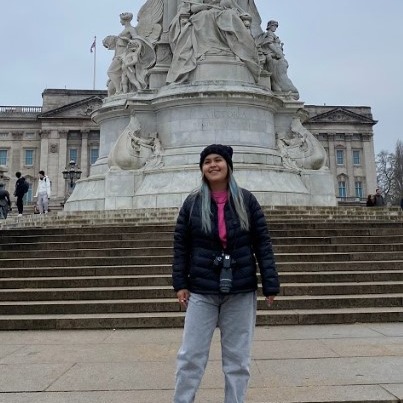
3:30-3:50pm- Bridget Duven
“Pensé que este país me iba a proteger” Los centros de detención de ICE a través de la lente de la teoría de un estado de excepción de Giorgio Agamben/
“I thought this country was going to protect me”: ICE Detention Centers Through the Lens of Giorgio Agamben’s Theory of a State of Exception
The United States prides itself as a land of opportunity. Yet, it misrepresents the process and blurs the “promise” of the “American Dream” for immigrants. Should you seek the opportunity to live in the U.S. as an immigrant, you may find yourself in a gray zone–a state of exception– if ICE picks you up on a detainer. Giorgio Agamben, an Italian philosopher, argues that the lack of authority of constitutions and other guiding documents in general, leads to a state of exception. As a result, this ambiguity fosters a space for constitutional violations experienced by undocumented and documented immigrants alike in Immigration and Customs Enforcement (ICE) Detention Centers. This case study applies the State of ExceptionTheory to case law, the immigration code, and the Bill of Rights in the context of litigation disputes involving different ICE Detention Centers in the United States. It examines the argument that post-911 detention of noncitizens are more likely to experience constitutional rights violations as explained by a state of exception. The reclassification of immigration proceedings as civil or criminal proceedings may pull the matter out of the gray of the state of exception and into a visible arena where rights are protected for the detained.
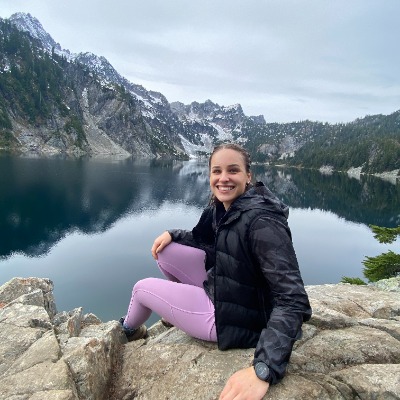
3:55-4:15pm - Elsy Olivares-Rodea
Los retos del familismo y los roles tradicionales de género para las estudiantes de primera generación: Un análisis chicana feminista de I’m Not Your Perfect Mexican Daughter de Érika Sánchez/
The Challenges of “Familismo” and Traditional Gender Roles for First General College Students: A Chicana Feminist Analysis of I’m Not Your Perfect Mexican Daughter by Érika Sánchez
When we think about the challenges faced by Latine youth when it comes to higher education, we tend to think about economic struggles. Although this is a common struggle for many first-generation students, Latine students face far more obstacles outside of financial hardships. In this presentation, through an examination of scholarly research, my experiences as an intern with the organization Proyecto Mole, and a literary analysis of the young adult novel I am Not Your Perfect Mexican Daughter by Erika Sánchez, I explore how many first-generation Latine students have to confront the challenges of familismo and traditional gender roles that are ingrained in their culture.
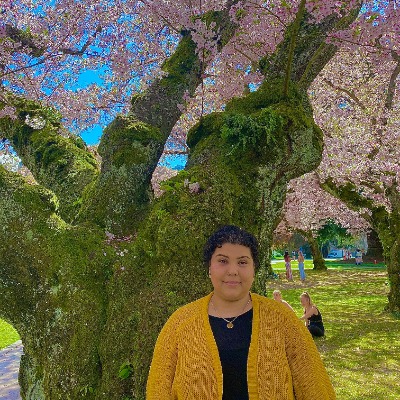
4:20-4:40pm - Marin Deifel
La representación del trauma de los jóvenes no acompañados en el cine: La jaula de oro y Which Way Home /
Filmic Representations of Trauma in Unaccompanied Minors: La jaula de oro and Which Way Home
In this presentation, I analyze how the two films Which Way Home (Quemada-Diez 2013) and La jaula de oro (Cammisa 2009) avoid the stereotypical “happy” endings seen in film representations within this genre and more accurately depict the psychological states of unaccompanied youth. I argue that this is done through careful use of cinematic tools within their respective genres to reflect the histories and the mental and emotional conditions of the unaccompanied minors. The behaviors as well as the conscious and unconscious feelings of the children can be explained in terms of psychoanalytic concepts of trauma (specifically related to migration, poverty, abuse of children, and indigeneity) and/or sexuality (as it relates to coming of age and adolescence). In being able to do this, the stories of these youth are used to educate the audience about the realities faced by unaccompanied children rather than provide entertainment value to the viewer.
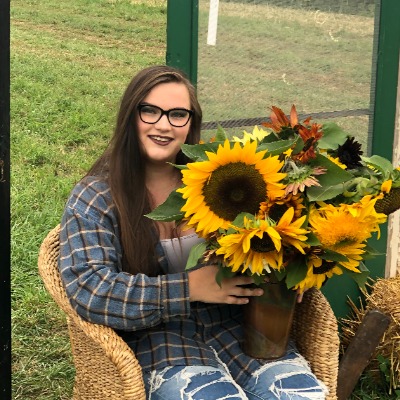
4:45-5:15pm - Emily Solan
La complejidad de los retos lingüísticos en Cataluña: Un análisis sociolingüístico de la literatura catalana-marroquí /
The Complexity of Linguistic Challenges in Catalonia: A Sociolinguistic Analysis of Catalan-Moroccan Literature
Due to the rivalry between Castilian Spanish and Catalan, Catalonia presents unique linguistic obstacles for those who immigrate not speaking either language. To show the singularity that exists within migration experiences, this project looks closely at two texts written by authors of Moroccan origin who immigrated to Catalonia as children. Each text captures the role of language acquisition in unique ways. The Last Patriarch, a novel by Najat El Hachmi, highlights the acquisition of Catalan as a form of liberation from the entrapment of the patriarchy, imposed on many Muslim-Moroccan women. Laila, an autobiography by Laila Karrouch, portrays language as a means to create a coexistence of cultures. Using a sociolinguistic lens, in combination with the sub-field of raciolinguistics, I analyze the texts’ interactions with language acquisition to emphasize the importance of social integration in this process. Ultimately, I explore the significance of language’s role in facilitating transcultural connections in an increasingly multicultural society.
